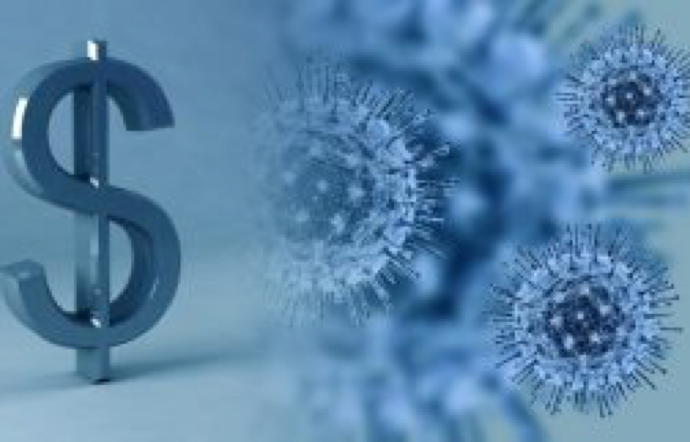The coronavirus (COVID-19) is the disease produced by the SARS-CoV2 virus whose impact has gone beyond its health condition and the high increase in mortality rates of the population worldwide, surpassing in Panama the date, according to reports from the Ministry of Health (Minsa), the 140,000 confirmed cases and around 3,000 deaths.
However, these are not the only consequences that have accompanied this health crisis.
The economic impacts that have been seen due to the pandemic, declared in this way at the beginning of March of this year, have been high and since the main focus of governments and organizations on these events is currently, many others have taken the opportunity to carry out numerous criminal acts.
According to the World Health Organization (WHO) “criminal groups have also rapidly adapted to the opportunities arising from the pandemic to exploit vulnerabilities and gaps in the health and criminal justice systems.”
During this time, the money laundering figures have continued to be recorded, however, the means for this to occur have been partly modified. According to the website of the International Police (Interpol): “The fight against money laundering is closely associated with investigations into the crimes to which it is linked.”
New sources of illicit money have emerged during this crisis, including cybercrime, misdirection or exploitation of government funds, and counterfeiting of medical products in the face of high demand, even misleading many governments.
According to the United Nations (UN): “Health and life are at risk with criminals who exploit the COVID-19 crisis to take advantage of public anxiety and the increased demand for personal protective equipment and medicines.”
In this way, a large amount of personal protective equipment and other false health products have been seen, which are not effective and that on the contrary affect the health of the population.
What’s happening? We are facing a very vulnerable time, the low control that is being seen by governments and the private sector against money laundering and terrorist financing puts us at risk of increasing these situations.
In this context, it is easier for criminals to find ways to disguise their true finances by misusing online services, increasing the unregulated financial sector and the opportunity to do more and more fraudulent negotiations or activities.
Speaking of the vulnerability in which we are living, during the month of July of this year, António Guterres, Secretary General of the UN, mentioned that “the psychosocial, economic and political tensions associated with COVID-19 increased dramatically.
Terrorists must not be allowed to exploit these fissures and weaknesses.
However, in a report by the same organization during the month of November, it is reported that non-state violent groups, including terrorists, right-wing extremists and organized crime such as Mexican cartels, have maliciously used social networks to reinforce their agendas during the COVID-19 pandemic, seeking to generate conspiracy theories about the origin of the virus that promote violence by these groups.
In addition, it says the pandemic d e COVID-19 was an opportunity for Mexican cartels and other countries where we have tried to disguise their true criminal intent with an alleged social aid.
There, criminal groups have distributed aid boxes, taking advantage of the difficult economic situation that the population is going through, distributing them with the name or logo of the organization and, later, promoting their actions in the media and / or social networks, representing the latter an important instrument for its dissemination.
In this way, what they seek is to promote their ideologies to the population, also managing to penetrate and infiltrate the legal economy.



 Bitcoin
Bitcoin  Ethereum
Ethereum  Tether
Tether  XRP
XRP  Solana
Solana  USDC
USDC  Cardano
Cardano  TRON
TRON  Lido Staked Ether
Lido Staked Ether  Avalanche
Avalanche  Toncoin
Toncoin